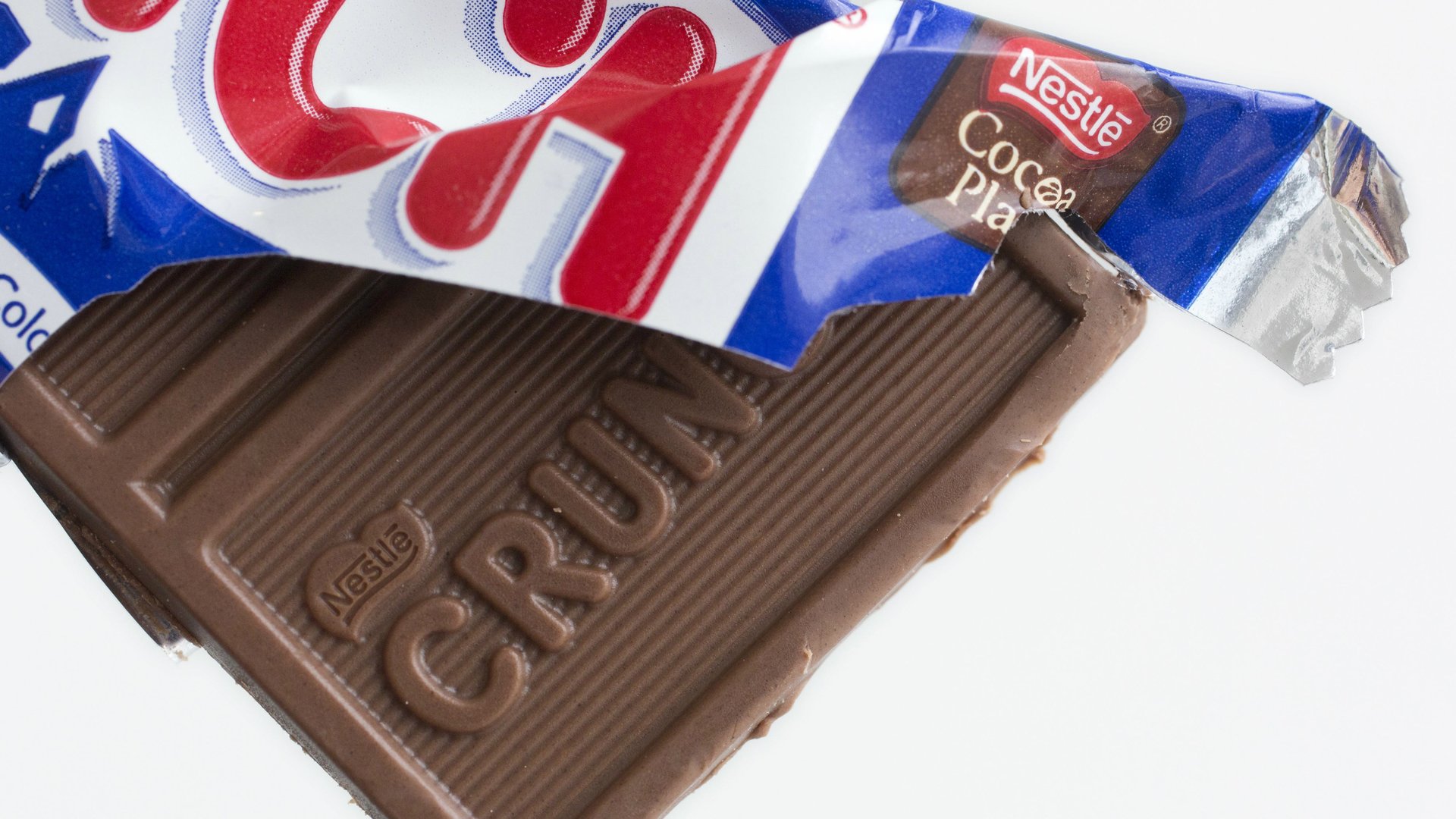The company behind Kit Kat bars wants to start selling you health supplements
In a substantial $2.3 billion deal, Nestlé, the maker of Kit Kat bars and DiGiorno’s frozen pizza, has acquired a company that makes organic and natural supplements.


In a substantial $2.3 billion deal, Nestlé, the maker of Kit Kat bars and DiGiorno’s frozen pizza, has acquired a company that makes organic and natural supplements.
While buying Canadian-based Atrium Innovations might sound like a strange choice for the world’s largest food company, it actually fits into Nestlé’s long-term goals nicely. Executives at the Swiss company have slowly worked to move Nestlé the health sphere, distinguishing the company among its manufacturing peers and situating it somewhere between food and pharmaceuticals. Acquiring a nutritional supplements company gives Nestlé the opportunity to wedge itself into a profitable market that will sit well alongside its infant formula business, as well as its coffee and bottled water segments, both of which have health benefits and play well toward younger consumers.
While Nestlé isn’t expected to go as far as attempting to enter the prescription drug market, the company has expressed interest in applying more scientific knowledge to food products in the hope of one day creating foods that could include frozen pizzas that also prevent Alzheimer’s disease. Morphing from a traditional food company into one with a focus more on health and wellness makes sense, given the market. Growth for a lot of major food companies has slowed in recent years.
Nestlé in recent years has been on an dealmaking tear, scooping up health labs around the world, hoping to fuse their medical know-how with its own food knowledge. Some of those deals include:
- In 2007, Nestlé acquired the Novartis Medical Nutrition division for $2.5 billion.
- In 2010, it acquired for an unspecified amount Liverpool-based Vitaflo, which develops “nutrition solutions” for people with genetic metabolic diseases.
- In 2011, it bought for an unspecified amount San Diego-based Prometheus Laboratories, which creates devices to diagnose gastrointestinal diseases and cancer.
- In 2012, Nestlé bought a minority stake in Accera, which researches and develops (not without controversy) medical nutrition for neurodegenerative diseases such as Alzheimer’s.
- That same year it began a 50-50 joint venture with Chi-Med, a Chinese pharmaceutical company, to develop plant-based products for gastrointestinal health.
- In 2013, Nestlé acquired Pamlab, which works in therapeutics for brain and metabolic health (again, for an undisclosed amount).
- In 2015, it invested $65 million in Seres Therapeutics Inc. in Cambridge, Massachusetts. That company is a leader in developing microbiome therapeutics.
- In early 2016, Nestlé signed a $120 million deal with Seres to develop a “healthy gut drug.”
Nestlé has also been relatively proactive about reworking the ingredients of some of its most popular products, particularly in the American market, to make them more healthy. Last year, Nestlé broke with fellow food-manufacturing companies to proactively embrace a plan to decrease sodium levels in its foods when other companies were still reticent. And it’s reformulated some products to rid them of long-winded and hard-to-pronounce ingredient lists, in order to win over customers seeking foods with simple, natural ingredients.
It’s too early to tell whether these efforts will translate into improved public health. According to a new peer-reviewed government report, packaged goods sold in the US are being made with less sugar and salt, but researchers have noticed increases in saturated fats—which have been connected to high cholesterol.